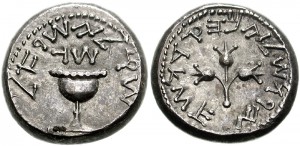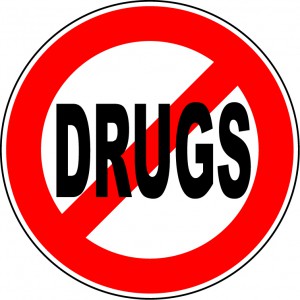New Weekday Late Arvit at Shaare Shalom
A late Minyan has been organized at Shaare Shalom during weekdays from Mon. to Thu. Arvit wiill begin at 8:00 pm. For more info please contact Yousef Livi.
B’Nai Mitzvah Chesed Program Raffle Drawing Results
The B’Nai Mitzvah Chesed Program is pleased to announce their raffle drawing results! Members of the Sisterhood drew the winning raffle tickets at the end of the Sisterhood’s amazing Purim Party on Sunday.
Congratulations to the following winners and thank you
to everyone for supporting the children in their
tireless efforts at raising money for charity!
– Lily Rahmanim won the Shop Delight gift card
– Roya Hakimian won the dinner at Shiraz
– Michael Liuim won the 42″ TV
– Esther Rahimi won the iPad
We would also like to take a moment and thank both of the Kanissa Boards as well as the Sisterhood who have given us their unconditional approval and support! Submitted by Sherri Bichoupan.
IAJF Young Leadership 2nd Annual Gala
Thursday, March 27th at 8:00 pm at the New York Public Library.
For more information please contact Joel Kamali.
Rabbanit Coty Bitton- Megillat Esther
SHALOM WEEK #25 Mar 15th 2014
Letter from the Community Rabbis regarding Purim
B’Nai Mitzvah Chesed – Sat Night – Mar 15
Stop by the B’Nai Mitzvah Chesed tables at either Shaare Shalom or Ohr Esther this Saturday night after the Megillah Reading to purchase snacks and raffle tickets! Each raffle ticket will be entered to win one of these prizes: Apple iPad (sponsored by Rodney and Shadi Hakimian) – 42″ Plasma TV (sponsored by Mehran and Arezou Hakimian, Allen and Lobat Hakim, Allen and Mojdeh Hakimian, Morris and Sherri Bichoupan) – Dinner for 10 at Shiraz (donated by Shiraz) – $250 Shop Delight gift card (donated by Shop Delight.) Every dollar raised will be donated to Zionist and Jewish Charities!!The raffle drawing will be held on Sunday at the Sisterhood’s Purim Family Megillah Reading at Ohr Esther! Come find out if you won!
Sisterhood & Ohr Esther Family Megillah Reading
Please join the Sisterhood and Ohr Esther Board on Sunday, March 16th at Ohr Esther (130 Steamboat Rd.) as we celebrate Purim with a Family Megillah Reading, followed by entertainment and food. Come dressed in exciting costumes and ready to have a great time. Event will take place from 10:30 am to 1:00 pm. Parking in the Ohr Esther parking lot will be limited only to those cars with 3 or more passengers. Additional parking will also be available in the lot across the street from Beit Haddassah Synagogue.
Purim Baskets (Mishloach Manot)
For many years Marilyn Kordvani organized the sale of Mishloach Manot gift baskets in our synagogues. In her memory, her daughter Cheri Haghighat will continue this tradition. As usual the baskets will be packed with only Israeli products (mostly Kosher for Pesach). They are of exceptional value and usually sell out very quickly.To ensure that you receive the number of baskets you need, please give your orders in advance by calling one of the following: Cheri Haghigat (212) 944-2700 – Minoo Hakimian (516) 487-3636, Mitra Hezghia (516) 482-0444. All proceeds go to Gym Minyan Youth Programs.
ELECTIONS Tuesday, March 18th
Drug & Alcohol Prevention Workshop
Save the Date! On Tuesday, March 25th there will be a Drug & Alcohol Prevention Workshop at Ohr Esther at7:30PM. All kids in 7th-11th grades are encouraged to attend along with their parents. Dinner will be served and all attendees are eligible for the raffle prize drawing that evening. For further information please call or email 708-9999 or avital@mashadi.org.
Parashat Tzav & Purim!
Dear Friends;
I hope that you will enjoy the following Parsha summary followed by a Dvar Torah on Purim;
” Parsha in a Nutshell “
G-d instructs Moshe to command Aaron and his sons regarding their duties and rights as kohanim (“priests”) who offer the korbanot (animal and meal offerings) in the Sanctuary.
The fire on the Altar must be kept burning at all times. In it are burned and consumed all kinds of offerings; peace, sin and guilt, and meal offerings. The kohanim eat the meat of the sin and guilt offerings, and the remainder of the meal offering. The peace offering is eaten by the one who brought it, except for specified portions given to the kohen. The holy meat of the offerings must be eaten by ritually pure persons, in their designated holy place and within their specified time.
Aaron and his sons remain within the Sanctuary compound for seven days, during which Moshe prepares them into the priesthood.
“ Festival of Purim “
Every Jewish Festival or Holiday, has a theme to it and comes with a “message”. For example, Pesach is all about eating Matzot and remembering the Exodus. Its’ message: Be grateful to Hashem who has freed us from slavery and brought us out of Egypt to be his Chosen People.
Sukkot, is all about leaving the comfort of our homes and going to live in a temporary “Hut”, so that we realize that our comfortable houses and all of our belongings that we own, are all because of Hashem’s generosity and not because of our own intelligence.
Shavuot, is all about receiving the Torah and realizing that we are Hashem’s chosen people and we need to follow his commandments.
Rosh Hashana and Yom Kippur is all about repentance. Once a year we have to ask for forgiveness from Hashem for all the sins that we have committed, and try our best not to repeat them again.
Chanukkah is the festival of lights. Its message is to show us that even at the darkest point in our lives, Hashem does not abandon us, and there is always a light at the end of a tunnel.
So, what is the theme for Purim and what message does it carry with it? Some people may think that it’s a Festival just for the children. They put on costumes on them and send out baskets of candies to their friends. Others might think it’s a Holiday to get wild. To party, dance and get drunk for some unknown reason?!
But the Chachamim say that the true message of Purim lies in the Megillah itself!
When Haman wanted to kill all the Jews, he came to King Achashverosh with the following argument: ” There is ONE nation scattered among your people in all of your provinces. They have their own laws, and they don’t even obey the King’s law.”
The Chachamim say that the same argument Haman used for asking to kill the Jews, is also the reason for their salvation. The key word here is “ONE”! The Jews were scattered across the 127 provinces of King Achashverosh jurisdiction which was almost the whole world of the time, but they were all united as ONE nation. They all prayed together, they all fasted together and they really cared about each other. Queen Esther was even ready to give up her life, in order to save the lives of the other Jews!! And because of the unity and the love that they had for one another, Hashem saved them from the wicked hands of Haman and his followers.
Yes my friends, the message of Purim is quite clear! Purim is a Festival of unity and friendship!! When we are united, there are no kings or leaders in the world that could defeat us. Hashem is always with us when we are united.
The Festival of Purim is the time to bring us closer to each other. It is the time to show our love for one another and to show that we care about ALL the Jews across the world and not just the ones in our own community! In the whole Megillah, there is no mention of Hashem’s name, not even once! Maybe its because during this Festival, Hashem wants us to get closer to each other, rather than to get closer to Him! It’s a Holiday for us Jews to bond together!! That’s why the main Mitzvot of this Holiday is to give gifts, preferably to a distance friend, and give charity to the people in need. It’s the time to get rid of all the grudges and find the way to become close to those people we have distance ourselves from!! It’s a time to find a way to people’s heart and love everyone we know! And that’s what Purim is all about!
So my friends, now that we know what Purim is all about, let’s celebrate it together with joy. Let’s drink, dance and party together, not because we just want to have fun; but since we love each other so much!
Shabbat Shalom, Purim Sameyach & Regards;
Martin
Alcohol Consumption on Purim
As we all know, the issue of drinking on Purim has been a major problem in recent years across modern Orthodox communities. Please read this short message from the community Rabbis regarding the mitzva of drinking on Purim and what it is all about. May this year’s Purim be a joyous and safe Purim for our entire community.
Collecting SHEQUALIM
The Charity Committee will be collecting SHEQUALIM. This year the suggested amount is $5 for every man 13 years old and up with the approval of Harav Ben-Haim. Please pay the amount ONLY to the Shaare Shalom office, Saeed Hakimian, Yossi Namdar or Moris Aziz. For more information please contact Moris Aziz at (516) 850-8787.
Drug & Alcohol Prevention Workshop
Local Elections Tuesday, March 18th
Six villages in Great Neck are holding elections on Tuesday, March 18th. Please GET OUT & VOTE in these elections. It is very important that the Villages see that our Community is active in the election process.
Great Neck Estates: Noon to 9pm at Village Hall, 4 Gateway Dr.
Russel Gardens: Noon to 9pm at Village Hall, 6 Tain Drive
Great Neck Plaza: 9am to 9pm at Village Hall, 2 Gussack Plaza
Kensington: Noon to 9pm at Village Hall, 2 Nassau Drive
Saddle Rock: Noon to 9pm at Village Hall, 18 Masefield Way
Thomaston: Noon to 9pm at Village Hall, 100 East Shore Road
Parashat Vayikra!
Dear Friends;
I hope that you will enjoy the following Parsha summary followed by a Dvar Torah;
” Parsha in a Nutshell ”
Parashat Vayikra begins with Hashem calling Moshe into the Mishkan where he will be taught many mitzvot, to be ultimately passed on to the Jewish people. The first half of the parsha describes the various “optional” korbanot (sacrifices) brought by individuals. They consist of the following: the korban olah (elevation offering) which is completely consumed on the altar; the korban minchah (meal offering) which, because of its inexpensive contents, is usually brought by someone of modest means; and the korban shelamim (peace offering) partially burned on the altar, with the remainder divided between the owners and the Kohanim.
The sin offering is brought to atone for transgressions committed negligently by the High Priest, the entire community, the king, or the ordinary Jew.
The “guilt offering” is brought by one who is in doubt as to whether he transgressed a divine prohibition, or who has committed a “betrayal against G-d” by swearing falsely to defraud a fellow man.
Sunday Morning Parasha Class with Rabbi Adam
R. Adam’s Sunday Morning Parasha Class
Our Sunday Morning Parasha Class is on for this week (Mar. 9). We will be studying Megillat Esther!
A special thanks to this week’s sponsor for breakfast, Mr. Jon Zabihi, for the refuah shelema of all the sick in the community.
Breakfast will be served at 9:45 am, the class is 10 am – 11 am, at 54 Steamboat Road.
MYC Blood Drive, This Sun Mar 9th.
Save A Life! 10 am-6 pm at Shaare Shalom – Any questions contact Charlotte Shahverdi: 516-424-2252













You must be logged in to post a comment.